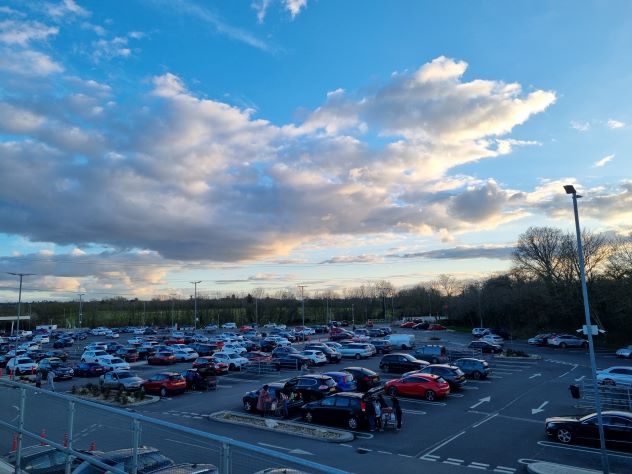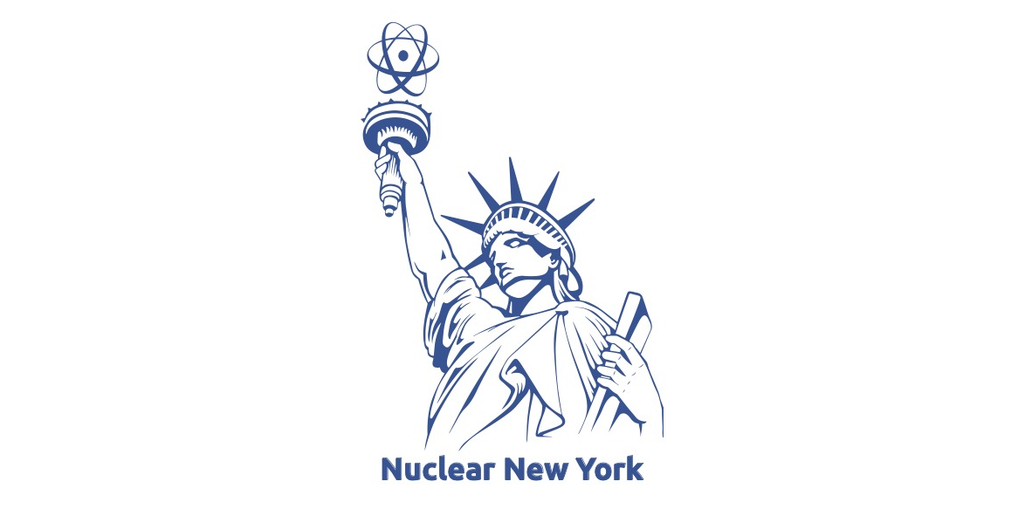
Explore the Future of Clean Energy at Nuclear Symposium 2024
A part of UN General Assembly Science Summit 2024 and Climate Week NYC
Date: Wednesday, September 25, 2024
Time: 9:00 AM – 4:00 PM
Location: Cornell Tech Campus, NYC and virtual simulcast
Registration: https://www.nuclearsymposium.com/2024
NEW YORK–(BUSINESS WIRE)–#DOE–On September 25, 2024, global leaders in energy, technology, economic development, and conservation will convene a Nuclear Energy Symposium at Cornell Tech Campus in New York City. Titled Uplifting Humanity, the dynamic, thought-provoking event will be simulcast as part of the UNGA Science Summit during Climate Week NYC.
Organized in partnership with the Cornell Atkinson Center for Sustainability, the symposium will explore the tremendous potential of nuclear energy to deliver energy abundance and climate sustainability. Featuring engaging speakers, panelists, and art, the event aims to spark conversations on how society can maximize opportunities and overcome challenges of scaling up this reliable, clean energy technology.
Attendees will include energy experts, technology investors, economic development organizations, delegates from emerging economies, government agencies, and international environmental groups, all working toward climate solutions capable of meeting the needs of a growing world.
Key topics:
- The role of nuclear energy in achieving a prosperous, low-carbon future
- How nuclear supports social and economic empowerment
- Strategies for addressing community concern
- Opportunities for nature conservation through energy density
“The Cornell Atkinson Center for Sustainability is pleased to support these important conversations around the role of nuclear energy in achieving ambitious climate goals,” said Ben Furnas, Executive Director of the 2030 Project: A Cornell Climate Initiative.
“Nuclear power is Africa’s hope for a smooth transition to address energy poverty and promote industry,” said symposium speaker Dr. Robert Sogbadji with Ghana’s Ministry of Energy at a recent conference of African nations. “Together we are laying the groundwork for a future powered by clean and sustainable energy. Let us continue this journey with determination and foresight, knowing that our endeavors today will shape the trajectory of generations to come.”
“Nuclear energy is one of the most sustainable energy options, and its future depends on overcoming community concerns through transparency and education,” said Scott Lathrop, Tribal Elder of yak titʸu titʸu yak tiłhini. Lathrop will join the symposium to share his tribe’s efforts to regain their homeland around the Diablo Canyon Nuclear Power Plant in California.
“The demand for clean energy is huge,” said Kirsty Gogan, Founding Director and Co-CEO of Terra Praxis. “But it cannot be met with specialized, complicated, and expensive solutions that take years to build and lack access to mainstream finance. Innovations in design, manufacturing, licensing, and deployment are needed for nuclear energy to meet global demand at the speed, scale, and costs required to achieve global decarbonization and universal access to modern energy services.”
“As an environmentalist, I believe we should be expanding clean energy,” said Tea Törmänen, International Coordinator for WePlanet. “As a biologist, I want to highlight nuclear power’s minimal environmental impact.”
“Our nonprofit is passionate about advancing the conversation on nuclear energy as a vital tool for addressing climate change. We’re here to support and amplify dialogue during Climate Week NYC,” said Heather Hoff, Co-founder of Mothers for Nuclear. “The future of our planet depends on bold solutions, and nuclear energy is a key part of that.”
A gallery of atomic art — combining science and environmentalism — will be on display throughout the day courtesy of Eco-Nuclear Solutions of Massachusetts. “Exceptional pieces from around the world will highlight how nuclear power works in harmony with nature and why we should embrace, not fear, nuclear power,” said Susan Tordella, producer of the event.
Registration and Schedule
Full event schedule and registration details are available at Nuclear Symposium 2024. Lunch and refreshments will be provided.
Confirmed Participants
Jason Albritton, The Nature Conservancy
Dr. Lindsay Anderson, Cornell University
Nana Menya Ayensu, The White House
Dr. Dinara Ermakova, Anthropocene Institute and Generation Atomic
Danielle Butcher Franz, American Conservation Coalition
Alexander Kaufman, Huffington Post
Julie Kozeracki, U.S. Department of Energy Loan Programs Office
Scott Lathrop, yak titʸu titʸu yak tiłhini (ytt) tribe in California
Dr. Christina Leggett, Booz Allen Hamilton
Jacques Mosseri, Curio Solutions
Patrick O’Brien, Holtec International
Charles Oppenheimer, Oppenheimer Project
Angelica Oung, Anthropocene Institute and Clean Energy Transition Alliance
Carl Perez, Exodys Energy
Ryan Pickering, Crew Facilitator for DOE Consent-Based Siting Consortia
Tricia Pridemore, Georgia Public Service Commission
Edward Rios, EXIM Bank
Dr. Leonard Rodberg, Professor Emeritus of Queens College and Nuclear New York
Erich Scherer, New York State Energy Research & Development Authority
Isuru Seneviratne, LucidCatalyst
Dr. Charlyne Smith, Electric Power Research Institute
Dr. Robert Sogbadji, Ghanaian Ministry of Energy
Grace Stanke, Constellation Energy and Miss America 2023
Tea Törmänen, WePlanet
Dr. Nick Touran, WhatIsNuclear.org and TerraPower
Panel Discussions
The Nuclear Fuel Cycle
What are the components of the nuclear fuel cycle: from mining, enrichment, to fuel manufacture? What happens at the back end after energy generation? How is spent fuel stored safely? What are the pathways to reuse or recycle spent nuclear fuel? How is the supply chain readying itself to cater to the growing demand?
The Socio-Environmental Case for Nuclear
What are the implications of deploying this energy source with the least overall ecological impact? How do communities around nuclear plants view them? What are the possibilities for land conservation along with industrial development?
Energy Abundance
How does abundant energy help developing economies? What are developing economies doing to advance firm, clean nuclear power? What are the barriers and opportunities in financing, workforce development, and technology transfer?
System-Level Challenges of Decarbonization
What are the physical, monetary, environmental, and social challenges to decarbonization? What are the enabling conditions to advance clean energy systems? What lessons can be learned from New York and Georgia?
Delivery Model and Economics
What are the barriers to nuclear energy deployment: financial, permitting, and supply chain? What are the pathways to overcome these barriers, and where is progress taking place?
About Nuclear New York
https://www.nuclearny.org
Nuclear New York is an independent, non-partisan advocacy organization committed to a decarbonized future and nature conservation. Through rigorous research, policy advocacy, and public education, the organization works to promote nuclear energy as a key solution to the climate crisis.
About Cornell Atkinson Center for Sustainability
https://www.atkinson.cornell.edu
Established in 2010, the Cornell Atkinson Center for Sustainability is the hub of collaborative sustainability research at Cornell University, forging vital connections among researchers, students, staff, and external partners.
About Generation Atomic
https://www.generationatomic.org
Generation Atomic is the paragon of grassroots nuclear advocacy organizations with the mission to inspire and empower advocates for a clean future powered by atomic energy.
Contacts
Dietmar Detering, 917-251-2235, dietmar@nuclearny.org
Marie Domingo, 650-888-5642, marie@mariedomingo.com


